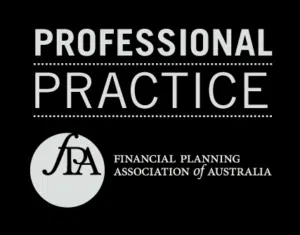13 August 2022
An apple a day won’t keep payroll tax away

Key factors in deciding that payments to Doctors were subject to Payroll Tax.
Reported earlier this year, Fletch Heinemann, Partner at Cooper Grace Ward Lawyers said the decision in case Thomas and Naaz (NSW) started alarm bells ringing for medical and allied health practices and their advisers.
The report says that some practices are structured so that each practitioner provides medical services to their patients, and the practitioner then receives administration services from a separate service entity. Until recently, advisers had often considered that patient fees that the service entity collected on the practitioner’s behalf were not subject to payroll tax when they were paid to the practitioner.
You can read more about what happened to Thomas and Naaz by clicking here.
Head of Accounting and Senior Adviser at Collins SBA, Nathan McGrath and Garth Wilson-Roberts, Senior Accountant at Collins SBA are watching the progress and outcome of this case closely for potential changes in legislation and/or the impact on other professional services.
In summary, the Doctors were providing a service not only to the patient but also to the Medical Practice. This was evidenced by the Doctors needing to agree to the rules of the medical practice. For example having to work set hours and giving notice when requesting annual leave - this is despite there being a 'service agreement' in place between the practice and the Doctors.
Garth Wilson-Roberts, Senior Accountant, Collins SBA
Note: In the case of Thomas and Naaz, as mentioned above, four (4) medical centres in NSW were reviewed and an assessment issued for 4 years of previous payroll tax, amounting to nearly $800k plus penalties and interest for non-compliance and non-payment.
The Tribunal held that the payments made by the medical practice service entities to the doctors engaged under Service Agreements were “wages” for the purpose of payroll tax. This is notwithstanding the fact that the payments represented the doctors’ own Medicare billings collected by the service entities on their behalf.
1. COST OF SALE
2. POS SYSTEM
3.COMPLIANCE
Key summary from our team:
1. Cost of sale: The financial statements of the medical practice under review had been recognising income collected from patients as an income item and payments to Doctors as a “Cost of sales” item. Our recommendation would be to reflect the payments to Doctors as negative income items, thereby reducing the reported income figure to being the ‘service fees’ withheld from the Doctors collections.
2. POS System: The Medical Practice under review collected money from patients and allocated as income of the Doctor in house. However the POS system used for the practice was issuing invoices / receipts to the patients from a single POS system which recorded the ABN of the Practice, rather than the specific Doctor’s ABN.
3. Compliance: Payroll tax legislation is largely harmonised between the states. Tasmania’s legislation is harmonised with NSW, whereby the definitions are identical. There are differing thresholds that apply between states. Will all State Revenue Offices look into medical practices for payroll tax compliance?
Please click on the Let’s Chat below to discuss in further detail or if you are concerned about this information.

















